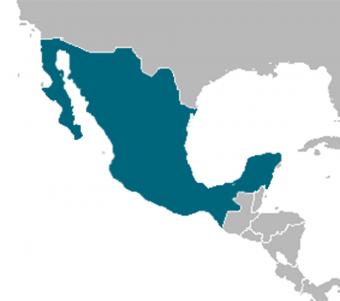Mexico
Recent Activity
This report analyzes the impact of established diaspora on the reduction of poverty in their countries of origin. It examines their contributions beyond individual remittances, in the dimensions of foreign direct investment, market development, technology transfer, philanthropy, tourism, political contributions, and the more intangible flows of knowledge, new attitudes, and cultural influence.
Jorge Durand examines Mexico's long history of and ambivalent attitude toward migration to the U.S..
Mexican negotiators seek shared responsibility over U.S.-Mexico migration issues, according to Gustavo Mohar, former chief negotiator for migration affairs at the Mexican Embassy in the U.S..
MPI President Demetrios Papademetriou maps out the historic challenges and opportunities in U.S.-Mexico relations in the wake of President Bush's immigration reform proposal.
During the 1990s, NAFTA was promoted by both U.S. and Mexican officials as a means to spur economic growth and job creation in Mexico and thereby reduce the number of unauthorized migrants entering the U.S. from Mexico each year. This report takes a critical look at NAFTA’s impact on regulating migration from Mexico to the United States.
This report provides basic information on International Agreements of the Social Security Administration, bilateral agreements that coordinate the United States’ system for retirement, disability. It examines the eligibility criteria for receiving benefits and the concept of “totalization,” particularly with regard to the Social Security Totalization Agreement with Mexico proposed under President Bush’s plans for immigration reform.
Canada and Mexico’s importance to the United States is more than simply a border-state phenomenon. The trading relationship between United States and Canada represents the largest bilateral flow of income, goods, and services in the world. Meanwhile, Mexico is the United States’ second largest trading partner.







